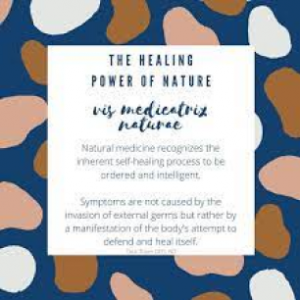Understanding Holistic Health
Holistic health is a philosophy rather than a set of rigid protocols. It views the individual as an interconnected system where physical ailments might reflect issues in other areas of life. By addressing the root causes of health issues, not just the symptoms, holistic health promotes a deeper sense of wellness and prevention of chronic diseases.
The Holistic Viewpoint
A holistic approach acknowledges that emotional and spiritual well-being can significantly influence physical health. The concept encourages us to consider how our lifestyle, environment, and relationships impact our overall health. It’s a shift from traditional medicine’s focus on curing diseases to preventing them through a deeper understanding of the mind-body connection.
The Pillars of Holistic Health
To truly grasp holistic health, one must understand its core components: physical, mental, emotional, and spiritual health. Each component plays a critical role in maintaining balance and harmony within.
Physical Health: The Foundation
Physical health is often the most familiar aspect of well-being. It includes the foods we eat, the amount of exercise we get, and our general physical condition. Holistic health approaches, like those advocated by Dr. Shusterman, often emphasize nutrition as a form of natural medicine. Integrating a diet rich in whole, unprocessed foods can significantly enhance our health. Regular physical activity, whether it’s yoga, walking, or more vigorous exercise, is equally important.
Mental and Emotional Wellness: The Mind-Body Connection

Mental health is not just about cognitive function but also emotional balance. Practices like mindfulness and meditation are not merely trends but are backed by research to improve mental clarity, reduce stress, and enhance productivity. Emotional health, closely tied to mental health, involves understanding and managing our emotions to foster better relationships and personal satisfaction.
Spiritual Well-being: Beyond the Physical
Spiritual health may not necessarily relate to religious practice but involves the quest for purpose and meaning in life. It could be through meditation, spending time in nature, or exploring various spiritual practices that resonate with individual beliefs.
Social Connections: The Community Aspect
Humans are inherently social beings, and our connections with others play a crucial role in our holistic health. Healthy relationships and a supportive community can enhance our emotional well-being and provide a sense of belonging and purpose.
Practical Steps Towards Integrating Holistic Health

Adopting a holistic approach to health doesn’t require a complete overhaul of your current lifestyle. Instead, it involves making intentional, manageable changes over time.
Consultation with a Holistic Doctor
Before embarking on any significant lifestyle change, it’s advisable to consult with a holistic doctor. Dr. Shusterman from Astery Healing Arts can provide personalized guidance based on your unique health needs. This consultation ensures that the chosen remedies and practices are safe and tailored to your individual circumstances.
Incorporating Natural Medicine and Remedies
Natural medicine offers an array of remedies that can complement conventional medical treatments. These might include herbal supplements, essential oils, and other non-pharmacological therapies that support body systems without the harsh side effects often associated with traditional medications.
Daily Practices for Holistic Health
- Mindful Eating: Pay attention to the quality of the food you consume. Opt for organic, unprocessed foods rich in nutrients.
- Regular Activity: Find a form of exercise you enjoy and can perform regularly. This consistency is more beneficial than intermittent intense workouts.
- Mental Fitness: Engage in activities that challenge and stimulate your brain, such as puzzles, reading, or learning a new skill.
- Emotional Processing: Develop healthy outlets for dealing with emotions, such as journaling, therapy, or artistic expression.
- Spiritual Exploration: Dedicate time to explore what spirituality means to you, whether it’s through community service, meditation, or exploring nature.
Embracing holistic health is a journey, not a destination. It’s about making continuous adjustments to ensure all aspects of your being — physical, mental, emotional, and spiritual — are in harmony. Remember, holistic health is highly individualized, and what works for one person may not work for another. Consulting with Dr. Shusterman ensures that your approach to holistic health is effective and sustainable. As you integrate these practices into your daily routine, holistic health can transform from a concept into a practical, enjoyable aspect of your everyday life, leading to a more vibrant, purposeful existence.






